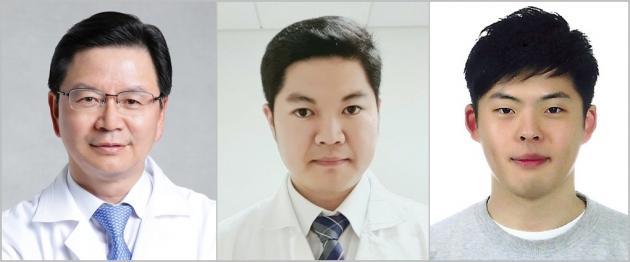Seoul St. Mary's Hospital said Thursday that its researchers have identified a new immune avoidance mechanism, raising the expectation of enhancing the effects of liver cancer immunotherapy.
Liver cancer, a refractory tumor, is one of the five most common cancers in Korea. Most patients who found cancer in early stages can be successfully treated, but the survival rate is low in advanced cases despite various conducted studies. Notably, patients with advanced liver cancer generally show poor prognosis as they tend to have tolerance against anticancer, radiation, and targeted therapy.
Although various treatments have been attempted to increase the therapeutic effect in advanced liver cancer patients, the most recently introduced immune checkpoint inhibitor monotherapy also showed the response rate of a mere 20 percent. The “cancer stem cells” are cited as a major problem that resists to various treatments. Cancer stem cells, which occupy less than 5 percent of all cancer cells, are known to play a key role in maintaining cancer tissue and regenerating reduced cancer cells after treatment.

The research team confirmed that the expression of the carcinoembryonic antigen-related cell adhesion molecule 1 (CEACAM1) on the cell surface, with high expression of epithelial cell adhesion molecule (EpCAM), increased to avoid immune mechanisms caused by tumor killer cells, such as natural killer cells.
The activity of natural killer cells, a representative tumor killer cell, is known to affect the recurrence and survival rate of liver cancer patients.
The CEACAM1 expression in liver cancer stem cells that manifests EpCAM interferes with the tumor killer cells and keep them from working properly, reducing the immunotherapy’s effect to half.
In the study, the researchers demonstrated with a mouse model that inhibiting CEACAM1 resulted in increased activity of natural killer cells and T cells in the tumor, reducing tumor size.
Professor Yoon emphasized that the study is significant because the team found a new target molecule that can enhance the reaction rate of immunotherapy for liver cancer, which stands at a mere 20 percent now.
"We will come up with a new method of immunotherapy through continuous research on the mechanism of immune evasion of liver cancer," Professor Sung said.
Also participating in the study were Professors Yoon Seung-kew, Sung Pil-soo, and researcher Park Dong-jun of the Department of Gastroenterology at St. Mary's Hospital. The results were published on the March 27 issue of Journal for ImmunoTherapy of Cancer, receiving an impact factor of 8.728.
The study was co-sponsored by the Ministry of Science and ICT, the National Research Foundation of Korea, and St. Mary's Hospital. The team has completed patent application for enhancing the immunotherapy efficacy by blocking CEACAM1 in EpCAM expressing liver cancer cells.

